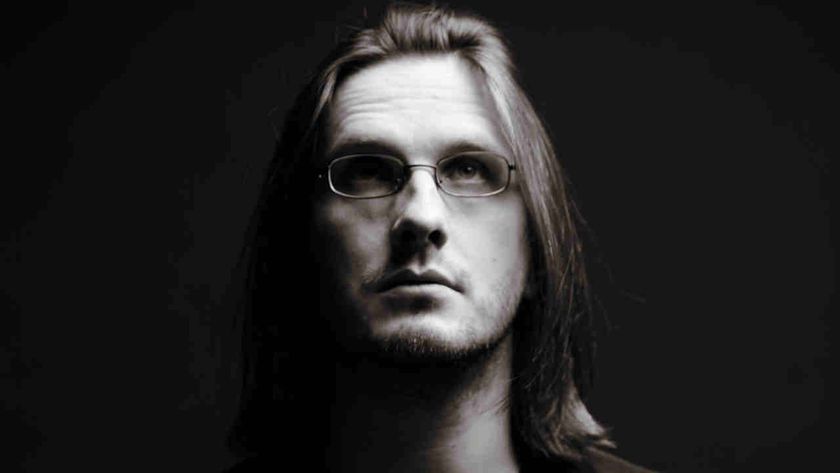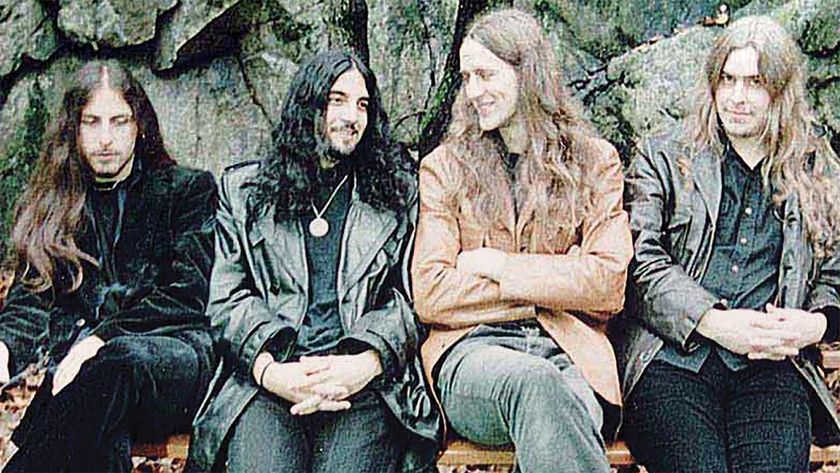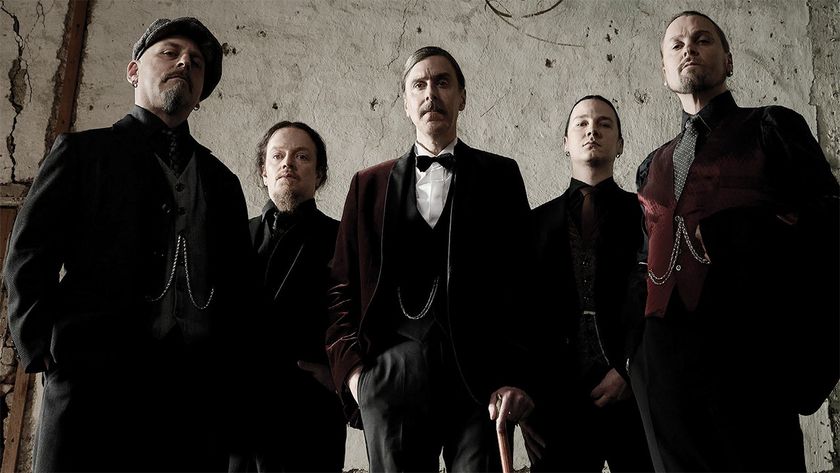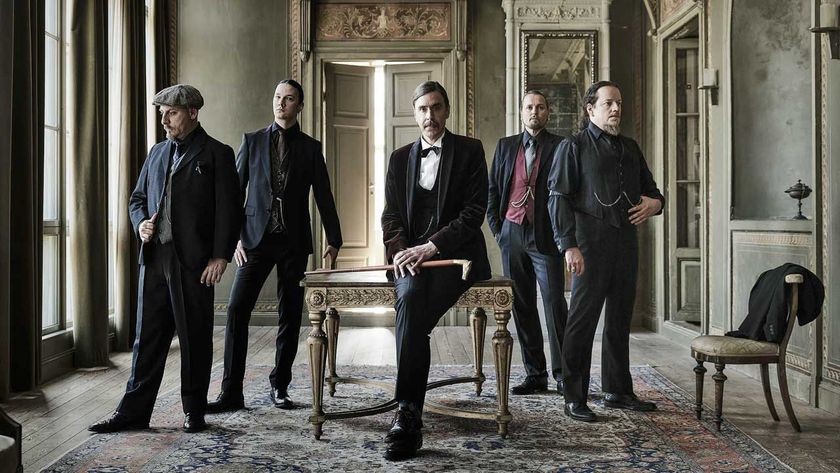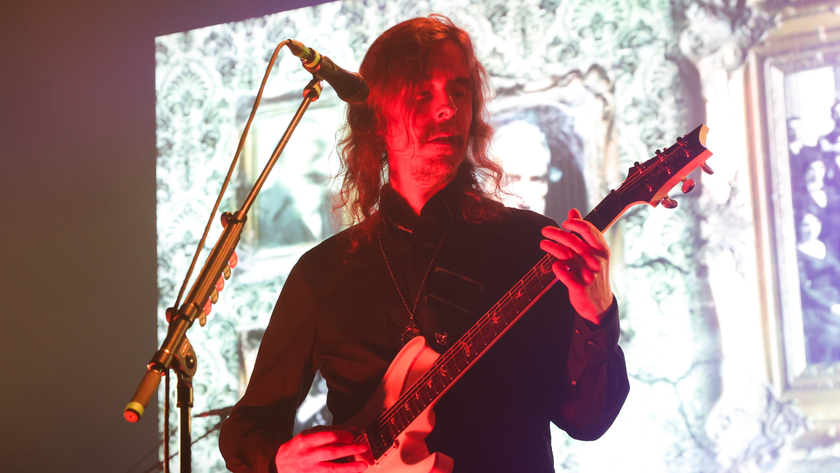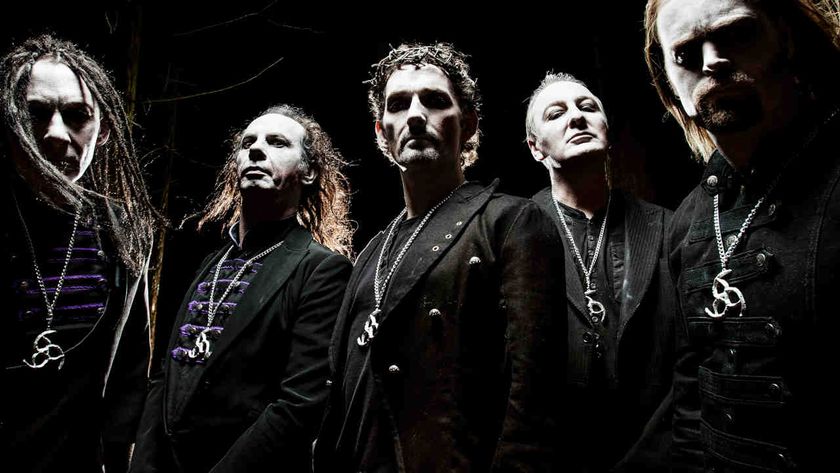
Feature Photo: Distributed by Columbia Records, Public domain, via Wikimedia Commons
Santana is inseparably connected to the vibrant cultural fusion of San Francisco’s late 1960s music scene, where guitarist Carlos Santana assembled a dynamic lineup in 1966, setting the foundation for a groundbreaking fusion of rock, Latin rhythms, jazz, and blues. Originally known as the Santana Blues Band, the group’s early performances at iconic venues such as the Fillmore West garnered significant attention, positioning them for a defining moment at the 1969 Woodstock Festival. Their electrifying set, highlighted by an iconic rendition of “Soul Sacrifice,” catapulted the band to global recognition.
With a prolific discography spanning several decades, Santana has released twenty-six studio albums, along with numerous live recordings and collaborations, illustrating an unwavering commitment to musical innovation and evolution. Their eponymous debut album, released shortly after their Woodstock performance, established the band’s signature style and included standout tracks like “Evil Ways.” The following year, their landmark album “Abraxas” solidified their stardom, featuring chart-topping hits such as “Black Magic Woman” and the exuberant instrumental “Oye Como Va,” which remains one of their most celebrated tracks.
Throughout their impressive career, Santana achieved significant commercial and critical acclaim, amassing numerous awards and honors. Notably, the band earned multiple Grammy Awards, particularly in 2000 when their album “Supernatural” swept nine Grammy wins, including Record of the Year and Album of the Year. This landmark album, driven by the massive global hit “Smooth,” featuring Rob Thomas of Matchbox Twenty, introduced Santana’s timeless appeal to a new generation, reaffirming their unique ability to seamlessly bridge musical genres and generations.
Santana’s enduring popularity is deeply rooted in their authentic blend of diverse musical influences and virtuosic musicianship. Carlos Santana himself is widely revered for his soulful, expressive guitar style, characterized by fluidity and emotional depth, qualities that have made him one of rock music’s most admired guitarists. The band’s ability to continuously reinvent their sound while maintaining their musical integrity has cemented their status as both cultural icons and musical trailblazers.
Outside the recording studio, Carlos Santana and his bandmates have dedicated substantial efforts toward humanitarian and social activism. Carlos established the Milagro Foundation in 1998, committed to supporting underserved and vulnerable children around the world by funding educational, healthcare, and arts programs. The band’s commitment to social consciousness extends through benefit concerts and participation in various philanthropic initiatives, underscoring their belief in music’s transformative power beyond mere entertainment.
Santana’s legacy is thus characterized not only by their impressive catalogue and accolades but also by their profound influence across cultural and generational lines. Their passionate performances, commitment to innovation, and meaningful contributions to social causes illustrate why Santana continues to be cherished deeply within the global music community, respected for both their artistic excellence and dedication to humanitarian principles.
Complete List Of Santana Songs From A to Z
- A Dios – Milagro – 1992
- A-1 Funk – Lotus – 1974
- Adouma – Shaman – 2002
- Africa Bamba – Supernatural – 1999
- Africa Speaks – Africa Speaks – 2019
- Agua que va caer – Milagro – 1992
- Ah, Sweet Dancer – Shape Shifter – 2012
- All Aboard – Santana IV – 2016
- All I Ever Wanted – Marathon – 1979
- All the Love of the Universe – Caravanserai – 1972
- America – Shaman – 2002
- America for Sale – Blessings and Miracles – 2021
- American Gypsy – Zebop! – 1981
- Amoré (Sexo) – Shaman – 2002
- Amor Correspondido – Corazón (Deluxe) – 2014
- Angel Choir/All Together – Blessings and Miracles – 2021
- Angelica Faith – Shape Shifter – 2012
- Anywhere You Want to Go – Santana IV – 2016
- Aqua Marine – Marathon – 1979
- Aspirations – Borboletta – 1974
- Aye Aye Aye – Shaman – 2002
- Back in Black – Guitar Heaven – 2010 (AC/DC cover)
- Bahia – Moonflower – 1977
- Bang a Gong (Get It On) – Guitar Heaven – 2010 (T. Rex cover)
- Batonga – Africa Speaks – 2019
- Batuka – Santana III – 1971
- Batukada – Lotus – 1974
- Beijo de Longe – Corazón (Deluxe) – 2014
- Before We Go – Freedom – 1987
- Bembele – Africa Speaks – 2019
- Besos de Lejos – Corazón – 2014
- Black Magic Woman/Gypsy Queen – Abraxas – 1970
- Blue Skies – Africa Speaks – 2019
- Blues Magic – Santana IV – 2016
- Body Surfing – Shangó – 1982
- Borboletta – Borboletta – 1974
- Break – Blessings and Miracles – 2021
- Breaking Down the Door – Africa Speaks – 2019
- Breaking Out – Beyond Appearances – 1985
- Breathing Underwater – Blessings and Miracles – 2021
- Brightest Star – Zebop! – 1981
- Brotherhood – Beyond Appearances – 1985
- Brown Skin Girl – All That I Am – 2005
- Caminando – Santana IV – 2016
- Can’t You Hear Me Knocking – Guitar Heaven – 2010 (The Rolling Stones cover)
- Candombe Cumbele – Africa Speaks – 2019
- Canela – Shape Shifter – 2012
- Canto de los Flores – Borboletta – 1974
- Carnaval – Festival – 1977
- Castillos de Arena Part 1 (Sand Castle) – Lotus – 1974
- Castillos de Arena Part 2 (Sand Castle) – Lotus – 1974
- Changes – Zebop! – 1981
- Choo Choo – Santana IV – 2016
- Choose – Spirits Dancing in the Flesh – 1990
- Come as You Are – Santana IV – 2016
- Con Santana – All That I Am – 2005
- Corazón Espinado – Supernatural – 1999
- Cry Baby Cry – All That I Am – 2005
- Da Tu Amor – All That I Am – 2005
- Dance Sister Dance (Baila Mi Hermana) – Amigos – 1976
- Dance the Night Away – Guitar Heaven – 2010 (Van Halen cover)
- Dawn/Go Within – Moonflower – 1977
- Dealer/Spanish Rose – Inner Secrets – 1978
- Deeper, Dig Deeper – Freedom – 1987
- Dios Bendiga Tu Interior – Africa Speaks (Bonus Track) – 2019
- Do You Like the Way – Supernatural – 1999
- Dom – Shape Shifter – 2012
- E Papa Ré – Zebop! – 1981
- Echizo – Santana IV – 2016
- El Farol – Supernatural – 1999
- El Fuego – All That I Am – 2005
- El Morocco – Moonflower – 1977
- El Nicoya – Abraxas – 1970
- Eres La Luz – Shape Shifter – 2012
- Eternal Caravan of Reincarnation – Caravanserai – 1972
- Europa (Earth’s Cry Heaven’s Smile) – Amigos – 1976
- Everybody’s Everything – Santana III – 1971
- Every Step of the Way – Caravanserai – 1972
- Everything’s Coming Our Way – Santana III – 1971
- Evil Ways – Santana – 1969
- Feel It Coming Back – Corazón – 2014
- Feels Like Fire – Shaman – 2002
- Fillmore East – Santana IV – 2016
- Flame – Sky – Welcome – 1973
- Flor d’Luna (Moonflower) – Moonflower – 1977
- Flor de Canela – Borboletta – 1974
- Foo Foo – Shaman – 2002
- Forgiveness – Santana IV – 2016
- Free All the People (South Africa) – Milagro – 1992
- Free Angela – Lotus – 1974
- Freedom in Your Mind – Santana IV – 2016
- Full Moon – Spirits Dancing in the Flesh – 1990
- Future Primitive – Caravanserai – 1972
- Ghost of Future Pull / New Light – Blessings and Miracles – 2021
- Ghost of Future Pull II – Blessings and Miracles – 2021
- Gitano – Amigos – 1976
- Give and Take – Borboletta – 1974
- Give Me Love – Festival – 1977
- Going Home – Welcome – 1973
- Goodness and Mercy – Spirits Dancing in the Flesh – 1990
- Guajira – Santana III – 1971
- Gypsy Woman – Spirits Dancing in the Flesh – 1990
- Gypsy/Grajonca – Milagro – 1992
- Hannibal – Zebop! – 1981
- Hard Times – Marathon – 1979
- Here and Now – Borboletta – 1974
- Hermes – All That I Am – 2005
- Hold On – Shangó – 1982
- Hope You’re Feeling Better – Abraxas – 1970
- Hoy Es Adiós – Shaman – 2002
- How Long – Beyond Appearances – 1985
- I Ain’t Superstitious – Guitar Heaven – 2010 (The Jeff Beck Group cover)
- I Am Somebody – All That I Am – 2005
- I Don’t Wanna Lose Your Love – All That I Am – 2005
- I Love You Much Too Much – Zebop! – 1981
- I See Your Face – Corazón – 2014
- I’ll Be Waiting – Moonflower – 1977
- I’m Feeling You – All That I Am – 2005
- I’m the One Who Loves You – Beyond Appearances – 1985
- In the Light of a New Day – Shape Shifter – 2012
- Incident at Neshabur – Abraxas – 1970
- Indy – Corazón – 2014
- Introduction — Bill Graham (Milagro) – Milagro – 1992
- Iron Lion Zion – Corazón – 2014
- It’s a Jungle Out There – Spirits Dancing in the Flesh – 1990
- Jin-go-lo-ba – Spirits Dancing in the Flesh – 1990
- Jingo – Santana – 1969
- Joy – Blessings and Miracles – 2021
- Jugando – Festival – 1977
- Jungle Strut – Santana III – 1971
- Just Feel Better – All That I Am – 2005
- Just in Time to See the Sun – Caravanserai – 1972
- Kyoto (Drum Solo) – Lotus – 1974
- La Flaca – Corazón – 2014
- La Fuente del Ritmo – Caravanserai – 1972
- Leave Me Alone – Santana IV – 2016
- Let It Shine – Amigos – 1976
- Let Me – Amigos – 1976
- Let Me Inside – Shangó – 1982
- Let the Children Play – Festival – 1977
- Let the Music Set You Free – Festival – 1977
- Let There Be Light/Spirits Dancing in the Flesh – Spirits Dancing in the Flesh – 1990
- Life Is a Lady/Holiday – Inner Secrets – 1978
- Life Is Anew – Borboletta – 1974
- Life Is for Living – Milagro – 1992
- Light of Life – Welcome – 1973
- Lightning in the Sky – Marathon – 1979
- Little Wing – Guitar Heaven – 2010 (The Jimi Hendrix Experience cover)
- Look Up (To See What’s Coming Down) – Caravanserai – 1972
- Los Invisibles – Africa Speaks – 2019
- Love – Marathon – 1979
- Love Is You – Freedom – 1987
- Love Makes the World Go Round – Santana IV – 2016
- Love of My Life – Supernatural – 1999
- Love, Devotion & Surrender – Welcome – 1973
- Luna Hechicera – Africa Speaks – 2019
- Macumba in Budapest – Shape Shifter – 2012
- Make Somebody Happy – Milagro – 1992
- Mal Bicho – Corazón – 2014
- Mandela – Freedom – 1987
- Mantra – Lotus – 1974
- Marathon – Marathon – 1979
- Margarita – Corazón – 2014
- Maria Maria – Supernatural – 1999
- María Caracóles – Festival – 1977
- Meditation – Lotus – 1974
- Metatron – Shape Shifter – 2012
- Mientras Tanto – Africa Speaks (Bonus Track) – 2019
- Migra – Supernatural – 1999
- Mirage – Borboletta – 1974
- Mother Africa – Welcome – 1973
- Mother Yes – Blessings and Miracles – 2021
- Mother’s Daughter – Abraxas – 1970
- Move – Blessings and Miracles – 2021
- Move On – Inner Secrets – 1978
- Mr. Szabo – Shape Shifter – 2012
- My Man – All That I Am – 2005
- Never the Same Again – Shape Shifter – 2012
- Night Hunting Time – Shangó – 1982
- No One to Depend On – Santana III – 1971
- Nomad – Shape Shifter – 2012
- Nothing at All – Shaman – 2002
- Novus – Shaman – 2002
- Nowhere to Run – Shangó – 1982
- Nueva York – Shangó – 1982
- Once It’s Gotcha – Freedom – 1987
- One Chain (Don’t Make No Prison) – Inner Secrets – 1978
- One of These Days – Shaman – 2002
- One with the Sun – Borboletta – 1974
- Open Invitation – Inner Secrets – 1978
- Over and Over – Zebop! – 1981
- Oxun (Oshūn) – Shangó – 1982
- Oye 2014 – Corazón – 2014
- Oye Cómo Va – Abraxas – 1970
- Oye Este Mi Canto – Africa Speaks – 2019
- Para los Rumberos – Santana III – 1971
- Paraísos Quemados – Africa Speaks – 2019
- Peace on Earth…Mother Earth…Third Stone from the Sun – Spirits Dancing in the Flesh – 1990
- Peace Power – Blessings and Miracles – 2021
- Persuasion – Santana – 1969
- Photograph – Guitar Heaven – 2010 (Def Leppard cover)
- Practice What You Preach – Borboletta – 1974
- Praise – Freedom – 1987
- Primera Invasión – Zebop! – 1981
- Primavera – Supernatural – 1999
- Promise of a Fisherman – Borboletta – 1974
- Put Your Lights On – Supernatural – 1999
- Reach Up – Festival – 1977
- Red Prophet – Milagro – 1992
- Revelations – Festival – 1977
- Riders on the Storm – Guitar Heaven – 2010 (The Doors cover)
- Right Now – Beyond Appearances – 1985
- Rumbalero – Blessings and Miracles – 2021
- Runnin – Marathon – 1979
- Saideira – Corazón (Deluxe) – 2014
- Saideira (Spanish version) – Corazón – 2014
- Saja/Right On – Milagro – 1992
- Samba de Sausalito – Welcome – 1973
- Samba Pa Ti – Abraxas – 1970
- Santana Celebration – Blessings and Miracles – 2021
- Savor – Santana – 1969
- Say It Again – Beyond Appearances – 1985
- Se a Cabó – Abraxas – 1970
- Searchin’ – Zebop! – 1981
- Shades of Time – Santana – 1969
- Shake It – Santana IV – 2016
- Shangó – Shangó – 1982
- Shape Shifter – Shape Shifter – 2012
- She Can’t Let Go – Freedom – 1987
- She’s Fire – Blessings and Miracles – 2021
- She’s Not There – Moonflower – 1977
- Sideways – Shaman – 2002
- Since Supernatural – Shaman – 2002
- Singing Winds, Crying Beasts – Abraxas – 1970
- Smoke on the Water – Guitar Heaven – 2010 (Deep Purple cover)
- Smooth – Supernatural – 1999
- Song for Cindy – Blessings and Miracles – 2021
- Somewhere in Heaven – Milagro – 1992
- Song of the Wind – Caravanserai – 1972
- Songs of Freedom – Freedom – 1987
- Soul Sacrifice – Santana – 1969
- Soweto (Africa Libre) – Spirits Dancing in the Flesh – 1990
- Spark of the Divine – Shape Shifter – 2012
- Spirit – Beyond Appearances – 1985
- Spring Manifestations – Borboletta – 1974
- Stand Up – Marathon – 1979
- Stay (Beside Me) – Marathon – 1979
- Stone Flower – Caravanserai – 1972
- Stormy – Inner Secrets – 1978
- Sueños – Santana IV – 2016
- Summer Lady – Marathon – 1979
- Sunshine of Your Love – Guitar Heaven – 2010 (Cream cover)
- Taboo – Santana III – 1971
- Take Me with You – Amigos – 1976
- Tales of Kilimanjaro – Zebop! – 1981
- Tell Me Are You Tired – Amigos – 1976
- The Calling – Supernatural – 1999
- The Facts of Love – Inner Secrets – 1978
- The Game of Love – Shaman – 2002
- The Nile – Shangó – 1982
- The River – Festival – 1977
- The Sensitive Kind – Zebop! – 1981
- Touchdown Raiders – Beyond Appearances – 1985
- Toussaint L’Overture – Santana III – 1971
- Transcendance – Moonflower – 1977
- Treat – Santana – 1969
- Trinity – All That I Am – 2005
- Try a Little Harder – Festival – 1977
- Twisted – All That I Am – 2005
- Una Noche en Nápoles – Corazón – 2014
- Veracruz – Freedom – 1987
- Verão Vermelho – Festival – 1977
- Victim of Circumstance – Freedom – 1987
- Victory Is Won – Shaman – 2002
- Waiting – Santana – 1969
- Warrior – Shangó – 1982
- Waves Within – Caravanserai – 1972
- We Don’t Have to Wait – Milagro – 1992
- Well All Right – Inner Secrets – 1978
- Welcome – Welcome – 1973
- What Does It Take (To Win Your Love) – Shangó – 1982
- Wham! – Inner Secrets – 1978
- When I Look into Your Eyes – Welcome – 1973
- While My Guitar Gently Weeps – Guitar Heaven – 2010 (The Beatles cover)
- Whiter Shade of Pale – Blessings and Miracles – 2021
- Who Loves You – Beyond Appearances – 1985
- Who’s That Lady – Spirits Dancing in the Flesh – 1990
- Whole Lotta Love – Guitar Heaven – 2010 (Led Zeppelin cover)
- Why Don’t You & I – Shaman – 2002
- Wishing It Was – Supernatural – 1999
- Winning – Zebop! – 1981
- Written in Sand – Beyond Appearances – 1985
- Xibaba (She-Ba-Ba) – Lotus – 1974
- (Da Le) Yaleo – Supernatural – 1999
- Yambu – Santana IV – 2016
- Yo Me Lo Merezco – Africa Speaks – 2019
- Yo Soy La Luz – Corazón – 2014
- You and I – Santana IV – 2016
- You Are My Kind – Shaman – 2002
- You Just Don’t Care – Santana – 1969
- You Know That I Love You – Marathon – 1979
- Your Touch – Milagro – 1992
- Yours Is the Light – Welcome – 1973
- Zulu – Moonflower – 1977
Albums
Santana (1969): 9 songs
Abraxas (1970): 9 songs
Santana III (1971): 9 songs
Caravanserai (1972): 10 songs
Welcome (1973): 9 songs
Lotus (1974): 9 new tracks
Borboletta (1974): 12 songs
Amigos (1976): 7 songs
Festival (1977): 11 songs
Moonflower (1977): 8 new studio tracks
Inner Secrets (1978): 9 songs
Marathon (1979): 11 songs
Zebop! (1981): 12 songs
Shangó (1982): 11 songs
Beyond Appearances (1985): 10 songs
Freedom (1987): 10 songs
Spirits Dancing in the Flesh (1990): 10 songs
Milagro (1992): 12 songs
Supernatural (1999): 13 songs
Shaman (2002): 16 songs
All That I Am (2005): 13 songs
Guitar Heaven (2010): 12 songs (all covers)
Shape Shifter (2012): 13 songs
Corazón (2014): 15 songs (including deluxe edition tracks)
Santana IV (2016): 16 songs
Africa Speaks (2019): 13 songs (including bonus tracks)
Blessings and Miracles (2021): 15 songs
Check out our fantastic and entertaining Santana articles, detailing in-depth the band’s albums, songs, band members, and more…all on ClassicRockHistory.com
Cindy Blackman of Santana: The ClassicRockHistory.com Interview
Complete List Of Santana Band Members
Top 10 Santana Album Covers
Top 10 Santana Songs
Complete List Of Santana Studio Albums And Songs
Read More: Artists’ Interviews Directory At ClassicRockHistory.com
Read More: Classic Rock Bands List And Directory
Complete List Of Santana Songs From A to Z article published on ClassicRockHistory.com© 2025




























![Africa Speaks [2 LP]](https://m.media-amazon.com/images/I/61wJfxqG5zL._SL500_.jpg)

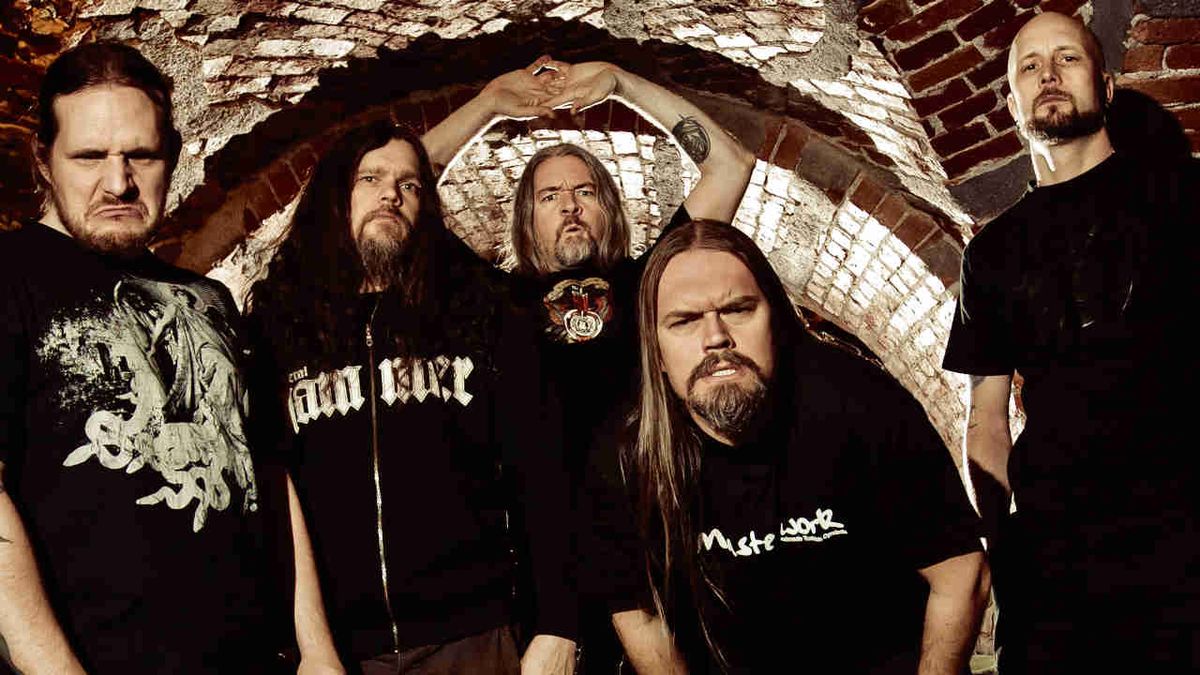

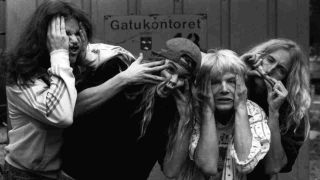
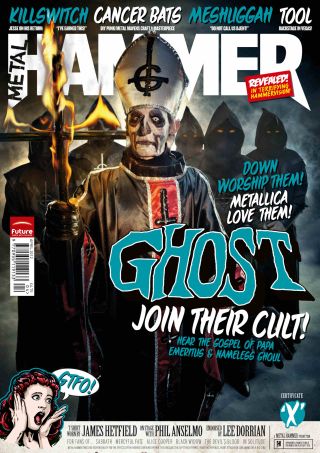
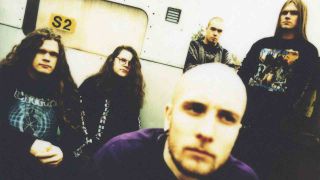

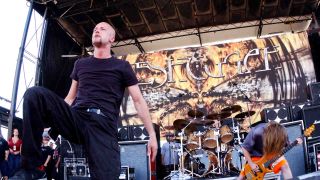

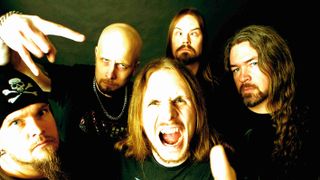

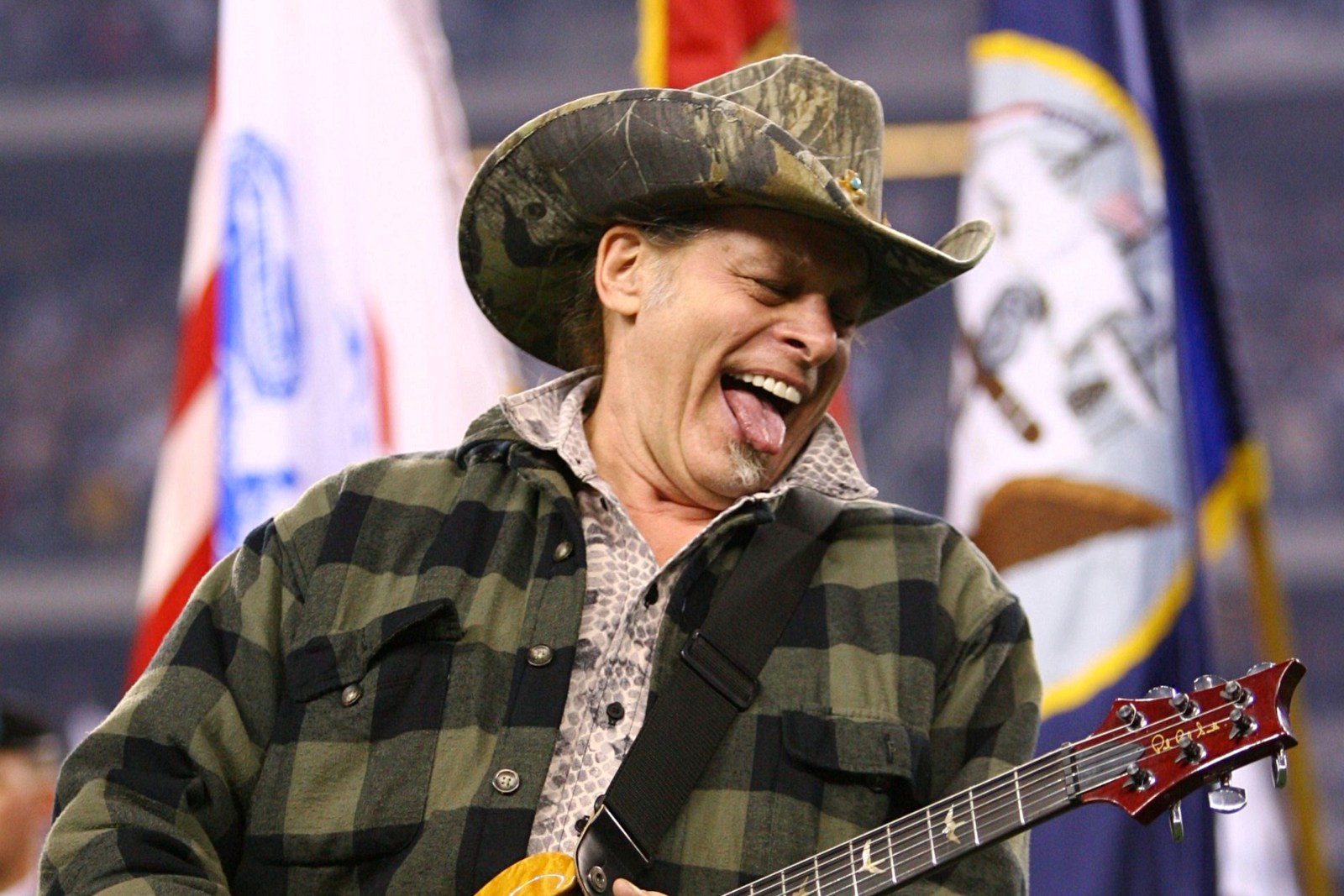
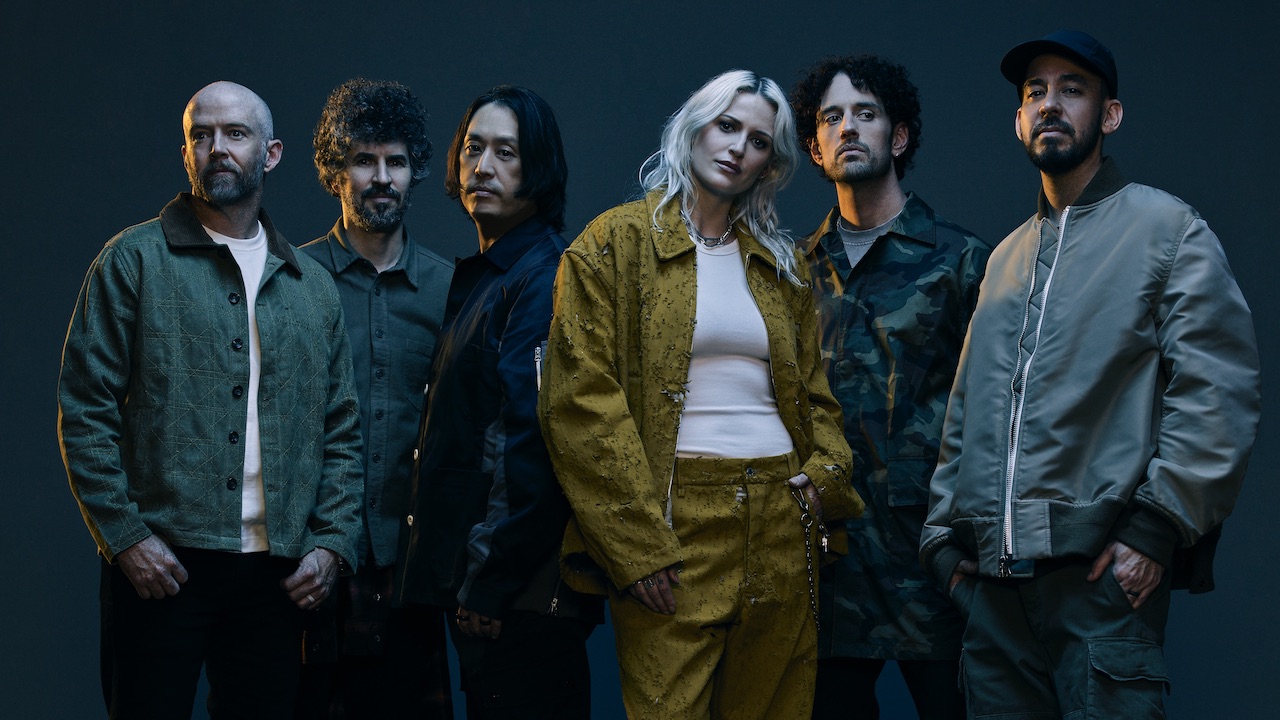

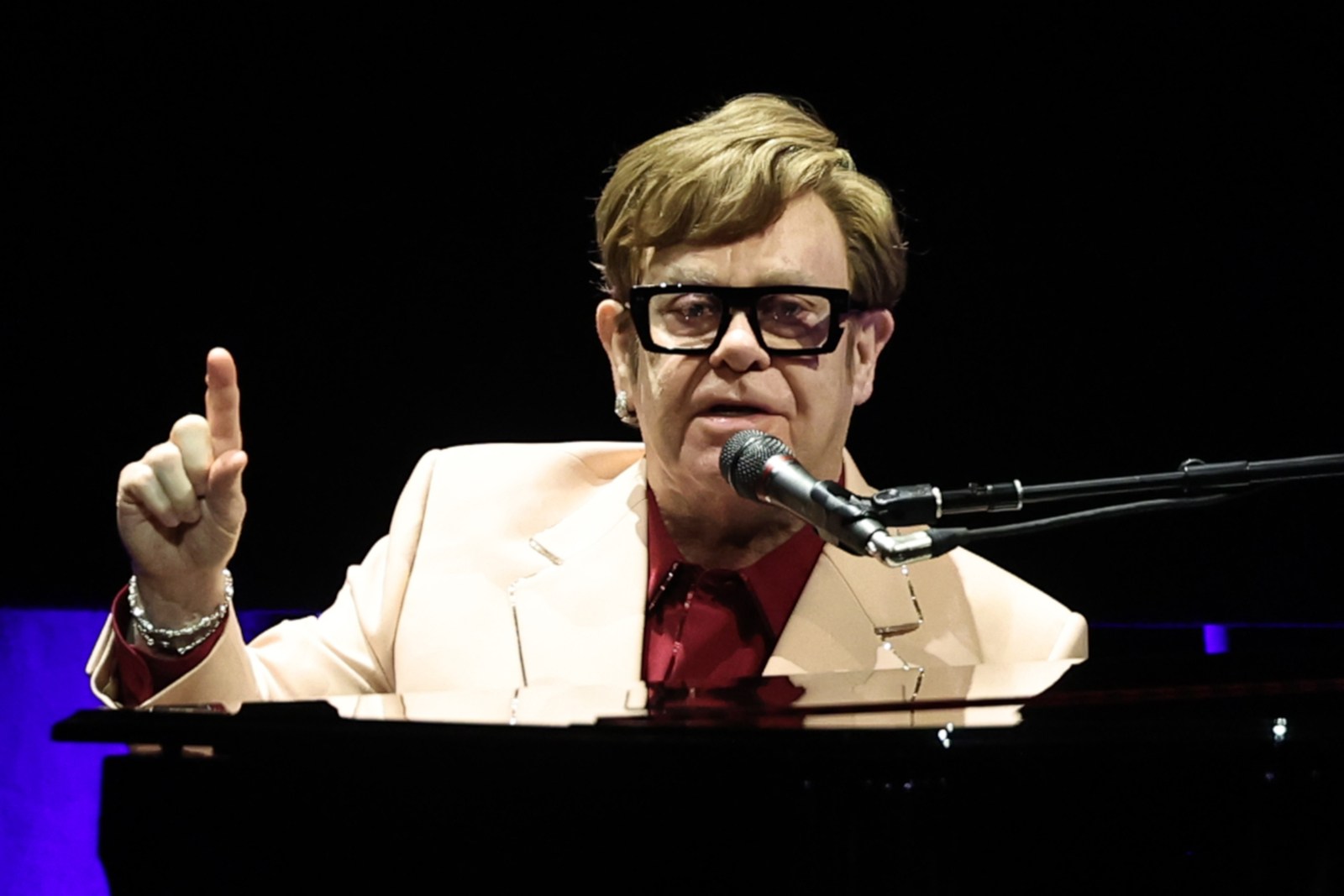
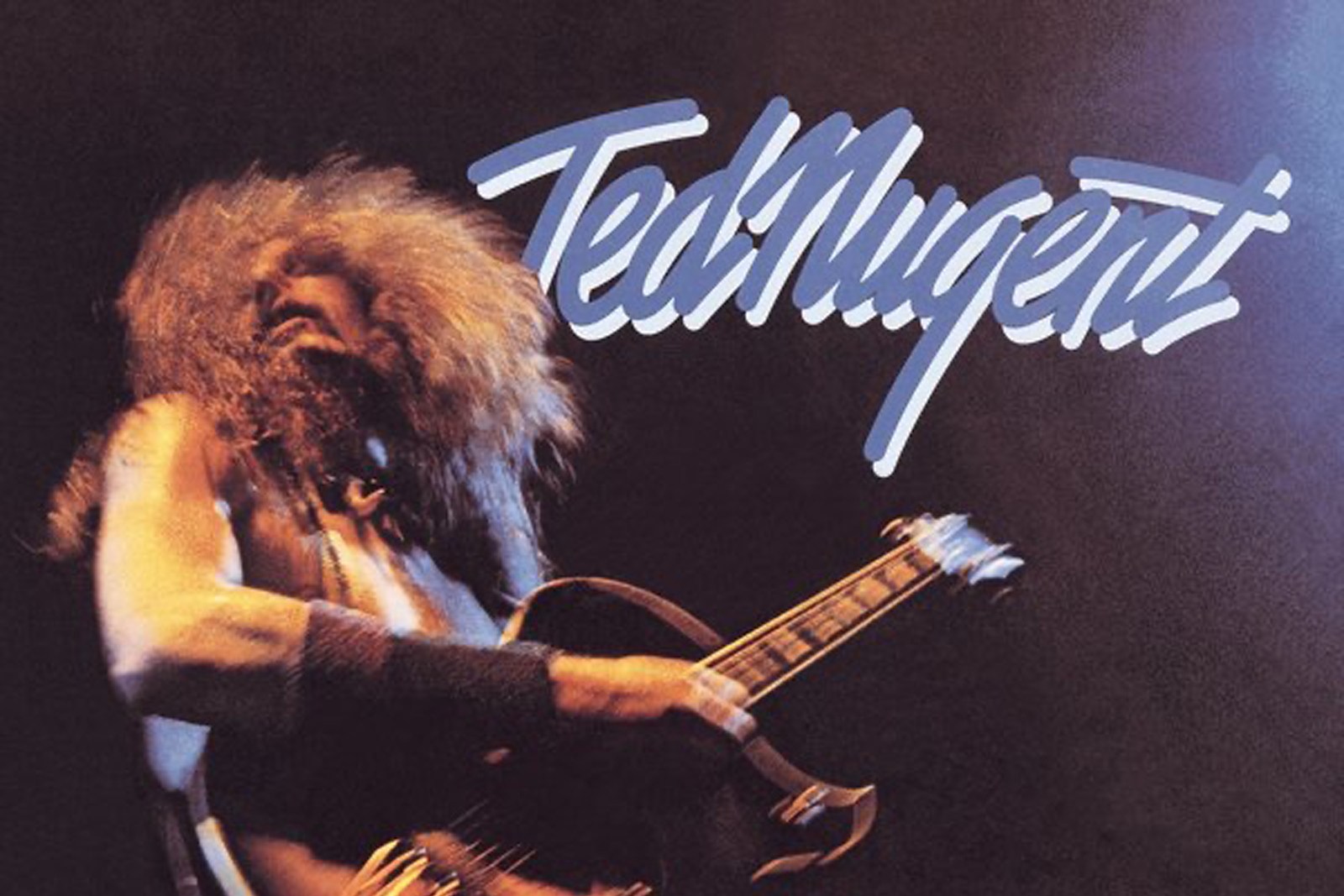
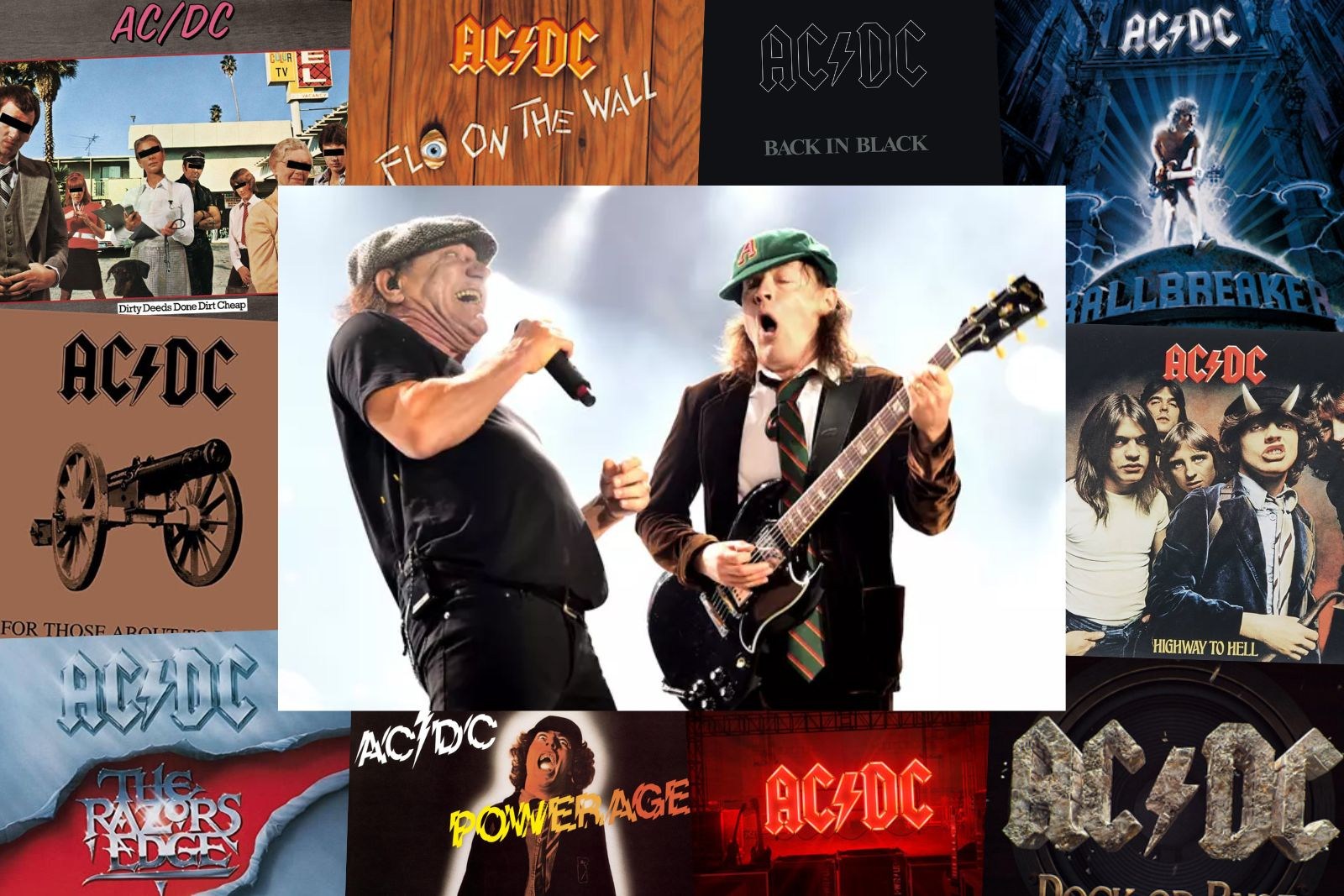




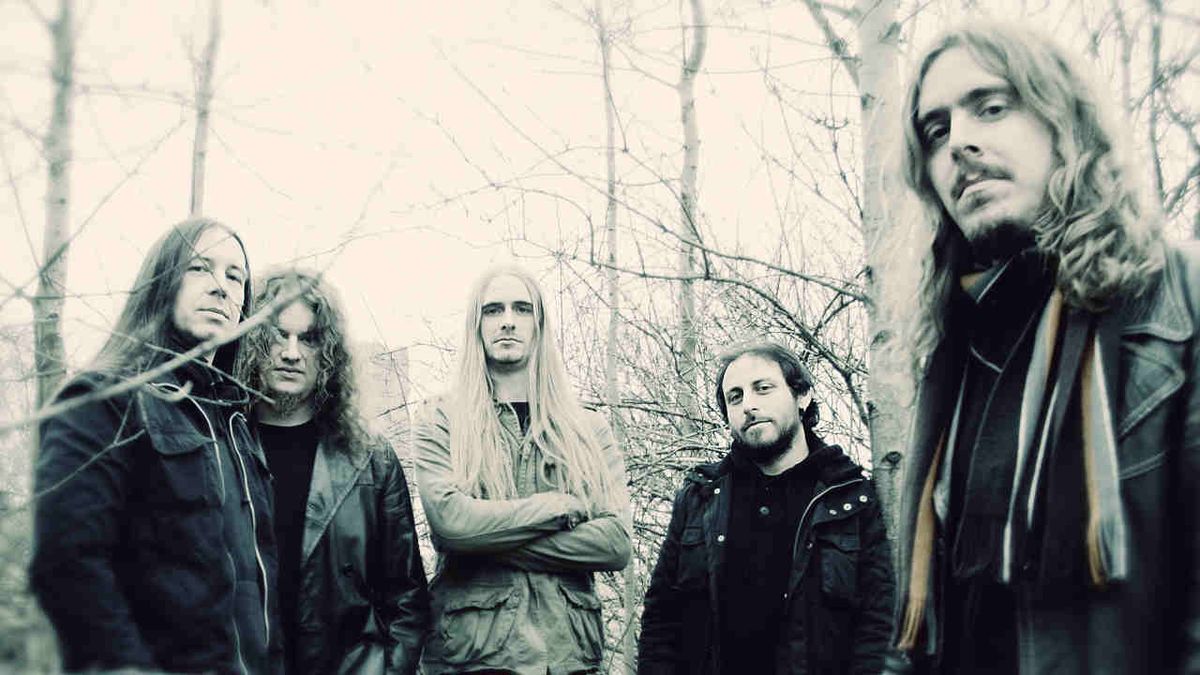
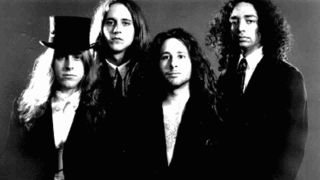
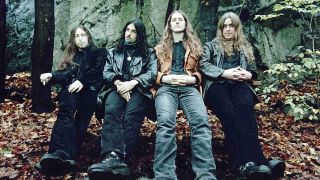


![Opeth - The Devil's Orchard [OFFICIAL VIDEO] - YouTube](https://img.youtube.com/vi/FxvN_GxgpF8/maxresdefault.jpg)
